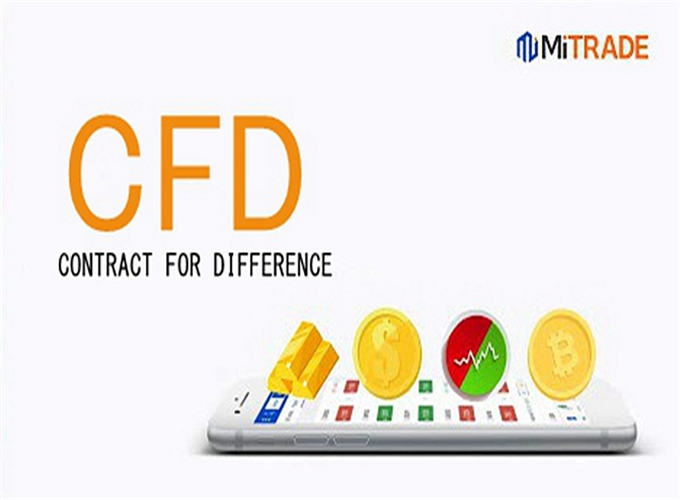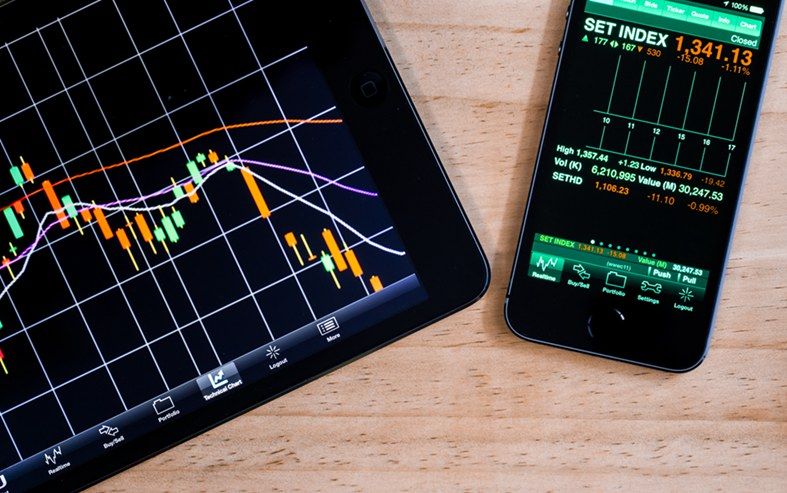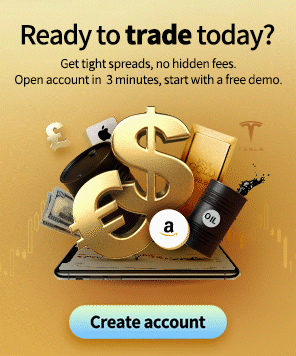CFDs vs. Futures: Which Is Better?
CFDs and Futures are popular investment instruments that allow people to buy and sell assets with controlled risk easily. However, many investors are lost in differentiating CFDs trading and investing in futures. This article explores the distinction between contracts for difference and futures trading to give you a better understanding.
Futures and CFDs are similar products, that are both derivatives, meaning they are contracts for "buying and selling markets". Both of them are leveraged trading. You must carefully control the position and avoid excessive leverage. It is not recommended for novice investors.
The Main Difference between CFDs and Futures
| CFDs | Futures | |
| Trading Types | mainly OTC trading | floor trading |
| Trading Way | Buy/Sell | Buy/Sell |
| Tradable commodities | much more | fewer |
| Leverage | high leverage(1-100) | high leverage(10-20) |
| Minimum deposits | small | higher |
| Expiry Date | no | yes |
| Margin trading | yes | yes |
| Trading hour | 24h one day | Fixed |
| Additional expense | yes (Overnight fee) | no |
| Tax | no | yes |
Here are a few key comparisons:
1. Differences in contract specifications: CFDs are more flexible
CFDs have no physical delivery and no expiry date issues. CFDs usually require less margin, so the leverage is greater, and the contract size and amount will be more flexible. Mitrade provides leverage from 1 to 200X on global markets, the minimum contract size is from 0.01, so you can set up your orders easily on your own.
2. Differences in fees: CFDs are suitable for short- and medium-term, while futures are suitable for long-term holding
Futures fees: commissions, taxes (usually low), spreads (very tiny)
CFD Fees: Spreads, Swap Fees
If you simply compare the cost, CFDs are higher than futures. If your funds are sufficient and the strategy is held for a long time, it is more recommended to use futures. CFDs are more suitable for short-term strategies, like day trading, and scalp trading.
What Is A CFD or Future?
CFDs
A contract for difference (CFD) is a financial derivative instrument where the differences between open and closing trade prices determine the profit of the position. The investor doesn't have ownership of the physical good, product, or security.
Investors can trade CFDs in almost all investment markets. Leading brokers globally provide investors with contracts for differences in currencies, cryptocurrencies, sovereign debt, indices, and metals such as gold and silver.
Read more: What Is CFD Trading? Costs, Hours, Risks
Futures
A Futures contract is an agreement between two or more parties to purchase or sell an asset at a specific price on a set date in the future. It is called Future because it is a contract that will be executed in the future. Speculators, mutual funds, and portfolio managers trade futures contracts to anticipate price movements on an underlying asset in the future.
Futures contracts are presented in markets such as commodities, agricultural goods, energies, currencies, and indices.
Think about future contracts for oil. Crude producers set prices for oil barrels over the next year. So any oil contract spans 12 months. As such, they guarantee prices, production, and budgets.
How to Trade with CFDs?
The value of a contract for difference is determined by the difference between the opening and closing price of a trade and not ownership of the underlying asset. Therefore, you make money when you buy low and sell at a higher price, and vice versa.
Usually, when you go long or buy a currency pair, you speculate the price will go up. This means you will sell at a higher price. On the other hand, when you open a short position, you believe that the price will go down.
Trade EUR/USD on Mitrade
Trade with ease on Mitrade! Trade Now>>>
CFDs pros
● Has no fixed expiration date
● Allows trading of currency pairs, ETFs, indexes, commodities, and futures.
● Allow the use of leverage to boost your profits.
● Easy to trade
CFDs disadvantages
● Often not traded on central exchanges
● Significant risks caused by wild price fluctuations
● Not allowed in the United States
● Require risk management skills
Please note: Margin FX and CFD trading carries a high level of risk and is not suitable for all investors. Please read the Risk Disclosure Statement before choosing to start trading.
How to Trade Future Contracts?
Traders don't need the real goods to buy and sell futures contracts. As it happens with CFDs, futures contracts generate profits or losses from the difference between the opening and closing prices. However, traders must close the position before the expiration date.
Let's take an oil futures contract as an example. An investor purchases a December contract at $60 per barrel, which goes up to $70 due to geopolitical tensions in the Middle East. The trader sells the contract for $70 per barrel and makes 10 dollars per unit. Easy cake!
Futures contracts pros
● Futures are traded on central exchanges
● Standard contract size
● Fixed expiration date
● Low financial costs
● Producers can hedge and anticipate trends
Futures cons
● High risk
● Investors can lose more than invested
● Futures can make you lose more profitable short-term trends
How to Choose: Trading CFDs and Trading Futures?
Choosing between CFDs or futures contracts shouldn't be complicated. You only need to consider the features of each and choose an instrument that suits you.
Here is an example. While CFDs are traded in brokerages such as MiTrade, the transactions of futures contracts take place on exchange venues.
Overall, futures are more structured instruments that offer less flexibility. They respond to specific prices and real market flows, such as demand. In addition, futures offer products that are centralized in particular places or avenues.
On the other hand, CFDs are more flexible and allow you to trade the same size of futures contracts with less money. Also, with CFDs, you can keep your trade open as long as you want. The contrary happens with futures, as you should close your contract before the expiration date.
Another big difference between CFDs and futures is that futures contracts have significantly wider spreads. Also, futures work with bigger contract sizes. In contrast, CFDs allow more leverage.
CFDs can trade almost any commodities, including forex, commodities, stocks, indices, cryptocurrencies, and more. Futures are mainly traded on commodities.
Indices (S&P500, Index): CFDs and futures are available
Commodities (gold, crude oil, etc.): CFDs and futures are available
Forex: mainly CFDs
Stocks and ETFs: futures or CFDs can be traded, but if you don't use leverage, choosing a stock broker is better.
Cryptocurrency: Only CFDs are available
→ Click to view Mitrade, find popular US stock investment opportunities
Manage Risk and Keep Your Trading Leverage at Decent Levels
One of the most critical topics in trading is risk management. Regardless of the market, instrument, or strategy, you are using, you should control your trades with risk management.
Below are some helpful risk management tips and how to keep your trading leverage at decent levels.
Usually, professional forex traders use 100:1 leverage in their accounts. That means that they can control $100,000 with just a 1,000 investment.
For beginners, it is prudent to start practicing with a demo account and learn how to use leverage.
Seasoned traders with solid strategies and good trading plans can use higher leverages. But remember, the more leverage you use, the more you expose your account. You should never risk more than 10% of your account balance in a single trade. Protect your account and diversify your positions.
Finally, accept bad trades, and cut the losing positions. Do not continue holding trades that are clearly on a losing streak.
------------------
? Get FREE Access to our strategies using the mitrade Demo Account.
What Does Mitrade platform Include?
300+ global markets trading
Daily Forex Signals with analysis
0 commission, low spreads
Take Profit, Stop Loss for every Trade
Read more
Why Forex Leverage is Very Important?
How To Use Stop Loss In Forex Trading?
* The content presented above, whether from a third party or not, is considered as general advice only. This article should not be construed as containing investment advice, investment recommendations, an offer of or solicitation for any transactions in financial instruments.
- Original
- Trading Analysis

Risk Warning: Trading may result in the loss of your entire capital. Trading OTC derivatives may not be suitable for everyone. Please consider our legal disclosure documents before using our services and ensure that you understand the risks involved. You do not own or have any interest in the underlying assets.




